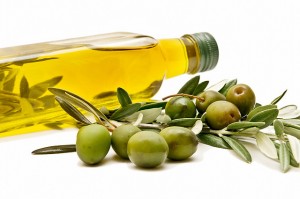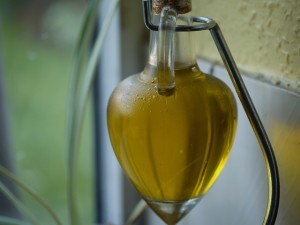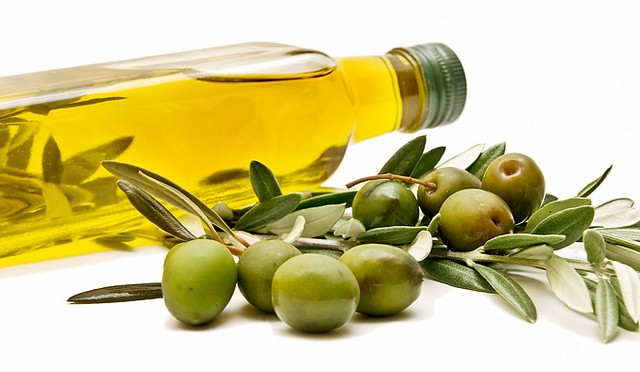Olive oil has been implicated over and over again in prevention of

cardiovascular disease in many populations. Research has found that the oleic acid and other phenolics in the olive oil contributes to lowered cardiovascular disease risk, specifically interacting with low-density lipoprotein (LDL) and other urinary proteomic biomarkers.
A new study in The American Journal of Clinical Nutrition aimed to evaluate whether or not supplementing a person’s diet with olive oil had any effect on various urinary proteomic biomarkers for coronary artery disease, chronic kidney disease, and diabetes. Additionally, two olive oil treatments were compared: one with low levels of phenolics or one with high levels of phenolics.
69 healthy people participated in this study and were randomly assigned supplementation with either high phenolic olive oil, or low phenolic olive oil. Supplementation occurred daily over a period of 6 weeks. Daily doses were 20mL.
Low phenolic olive oil was categorized as containing 18mg caffeic acid equivalents per kg, while high phenolic olive oil was categorized as containing 286mg caffeic acid equivalents per kg.
Urinary proteomic biomarkers, blood lipids, antioxidant capacity, and glycation markers were measured were measured at baseline, 3 weeks, and 6 weeks after daily olive oil supplementation.
Important Findings
- Daily supplementation of both olive oils reduced biomarker levels for coronary artery disease.
- Daily supplementation of both olive oils had no influence on biomarker levels of chronic kidney disease or diabetes.
- There were no significant differences in reduction of disease biomarkers between olive oil with low levels of phenolics versus olive oil with high levels of phenolics.
The results of this study indicate that supplementation with olive oil improved coronary artery disease risk based on urinary proteomic

biomarkers in healthy adults. On the other hand, olive oil supplementation did not seem to influence chronic kidney disease or diabetes risk based on urinary proteomic biomarkers.
Finally, there were no significant differences between the high and low phenolic doses of olive oil supplements, indicating that low dose of 18mg caffeic acid/kg is just as good as a high dose of 286mg caffeic acid per kg in reducing coronary artery disease risk.
Source:





![Photo By Dimitrije Krstic (Own work) [CC BY-SA 3.0 (http://creativecommons.org/licenses/by-sa/3.0)], via Wikimedia Commons](http://french-paradox.net/wp-content/uploads/2015/01/Systemic_Inflammation_AD_01_french_paradox-300x110.jpg)

![Photo by Anne Brown Rodgers [Public domain], via Wikimedia Commons](http://french-paradox.net/wp-content/uploads/2014/12/Older_adult_exercise_with_tin_can-french-paradox.jpg)
![Photo by Bill Branson (Photographer) [Public domain or Public domain], via Wikimedia Commons](http://french-paradox.net/wp-content/uploads/2014/12/older-women-stretching-french-paradox-300x199.jpg)

![Photo by Patrick J. Lynch, medical illustrator (Patrick J. Lynch, medical illustrator) [CC-BY-2.5 (http://creativecommons.org/licenses/by/2.5)], via Wikimedia Commons](http://french-paradox.net/wp-content/uploads/2014/12/Heart_left_ventricular_hypertrophy_sa_French_paradox-300x250.jpg)